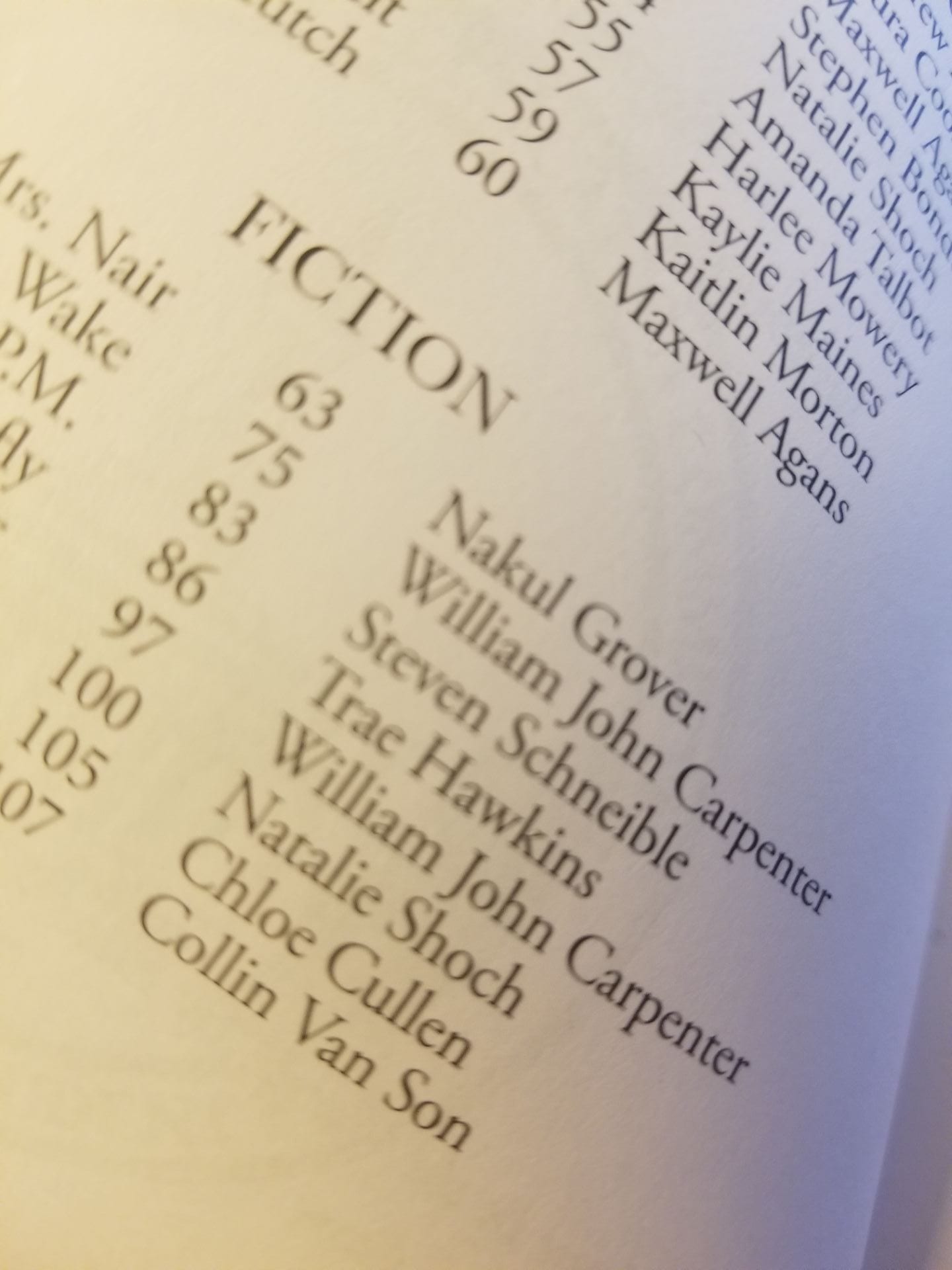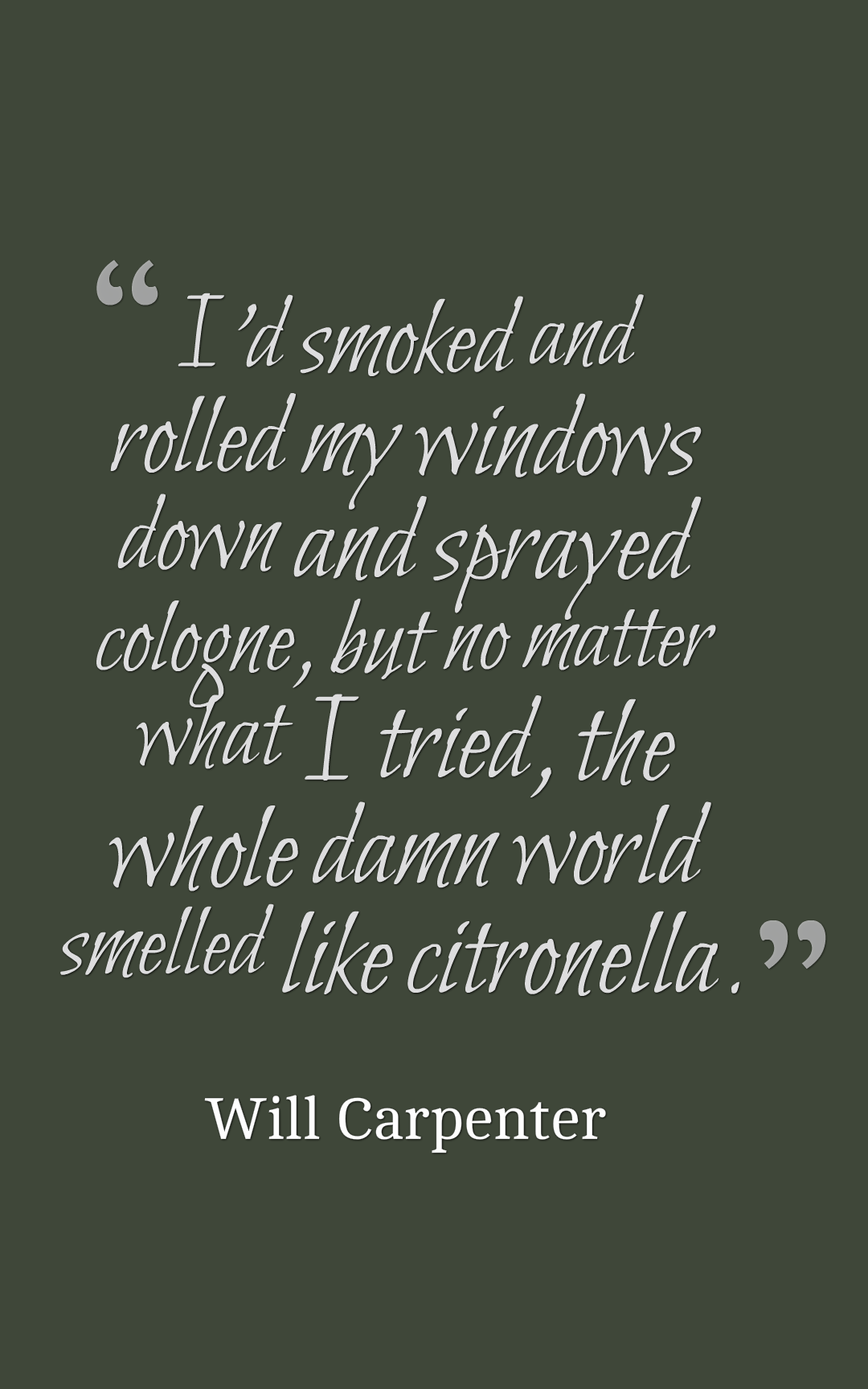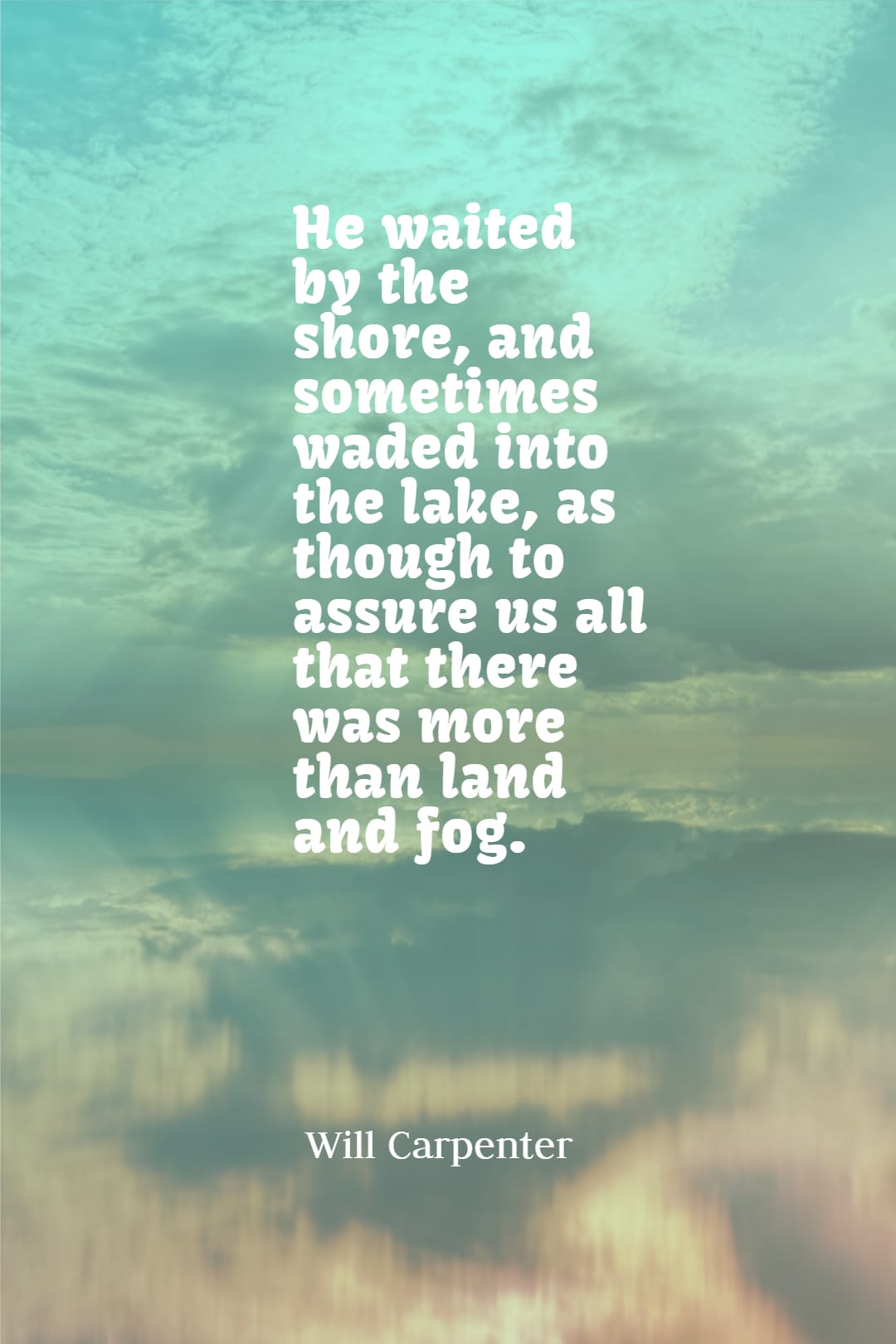By Nathan Ousey~
As you look through the table of contents in the 2018 edition of Kalliope, Penn State’s undergraduate literary journal, you might be surprised to see Will Carpenter’s name appear quite a few times. His submissions can be found in fiction, nonfiction, and poetry.
Flipping through each of his pieces feels like a change; it means flipping through the different genres themselves. Despite this, his quirky yet professional style is always there, and the quality is always consistent. It comes at no surprise, then, that two of his works in Kalliope’s latest edition alone have received 2018 Edward J. Nichols awards for fiction and nonfiction.
Will is a junior at Penn State University Park majoring in Political Science and Philosophy, with a minor in creative writing. I had the opportunity to send him some questions about his writing and enjoyed reading his responses.
Exploring Will’s Writing
Following in the theme of Klio, which is named after a Greek muse, I first asked Will what acted as his “muse,” or if anything in his life inspired him to write. “I guess I’ve always been a bit of a storyteller,” he says. “My friends and family teased me for my long-windedness in elementary and middle school, but I found that, on paper, I could say some things that people really seemed to appreciate.”
Will claims that, like most people do, he needs a little encouragement to keep writing. He notes that he has “more than a few” people who gave him this encouragement, including his sophomore-year high school English teacher. She helped push him to submit a piece of fiction to the school’s literary magazine. Indeed, it would seem that many good writers have humble beginnings such as these.
I asked Will if he would describe his creative process. As a fellow writer, it always interests me to hear how people manage to actually situate themselves and crank out a good story.
He explains that his process usually begins at 1 a.m. at the earliest, where he has escaped distractions and obligations. He then writes for “up to eight hours” at a time, or until he feels he has created a draft he is satisfied with. He describes his mindset while writing, even with first drafts: “I tend to write more carefully and intentionally than freely… and thus many of my subsequent edits involve sequencing and narrative, rather than word choice, syntax, etc.”
I inquired about how he manages working in three different genres and how he feels about having such a wide variability in his writing. “I really appreciate having access to such a variety of creative outlets,” he says. He explains that when he has a lot to say, sometimes it’s better expressed in prose and other times a better fit for poetry. He offers an interesting description of this difference:
“Often a topic will seem overblown in a prose piece but subtle as a poem. Likewise, a nonfiction story may lack details necessary to accentuate central themes and need to include fictitious details in order to bring them out.”
He does note, however, that it can be difficult for him to switch between modes of literary expression. Focusing on one form of writing for too long causes him to fear that he might fall out of practice of his other modes of creativity. This is certainly a common fear amongst writers to branch themselves out as he does. His published work, at the very least, displays no such drop in practice.
Award-Winning Work
As mentioned, two of Will Carpenter’s works from the latest issue of Kalliope earned 2018 Edward J. Nichols Awards, which are given annually by the Penn State English Department for fiction and nonfiction writing. (For more on these annual contests, including instructions on how to enter each January, visit the English Department website.)
One of these is his fascinating fiction piece, “Citronella Candles: Life After a Wake.” I advise anyone to read it if they haven’t already, if nothing else than for its excellent narration, brilliant dialogue, and refreshing take on the concept of death.
The narrator experiences the death of another character’s cousin through his eyes. The smell of the citronella candles at the ceremony lingers with the narrator until it fills his outlook of the entire world. Will comments that it unfolded with just “an opening scene, parts of the second-to-last scene, and a symbol. From there, I let it take its own route… and I think this allowed it greater authenticity than many of the stories I’ve begun writing with a concrete direction already in mind.”
He stresses that authenticity is important for any fiction piece to be effective; every aspect of the piece needs to be consistent with the world it creates and “that created world should be one the author is able to limn genuinely and honestly.” His advice is especially helpful to hear as Will is among the first fiction writers to be featured in a post on Klio.
His award-winning nonfiction piece, “The Cost of Scar Tissue,” tells an emotional story of a relationship he had taken in directions that might not be thought of as traditional for such a recounting. The main characters were himself and the girl, and it tells about the key events between them.
I asked Will what it was like describing events that were personal to him to an unseen audience. He claims that he never had much issue being open and expressive to people about these things, but he acknowledges the difference between this kind of audience and the audience of someone in front of him.
He says he felt “tremendous fulfillment in the prospect of sharing the experiences therin with readers who might benefit from or enjoy reading about them.” In doing so, he likes to maintain a “healthy vulnerability” that benefits not only himself but anyone who might take away something meaningful from reading his story.
Will’s hand in poetry cannot go unnoticed, either. One of his works in Kalliope 2018 that stuck out to me was “The Man in the Mist,” which offers excellent imagery and diction to create a scene that the title describes. A mysterious man exists by the shore of a lake and evokes provocative thoughts from the narrator. It still takes me by surprise to think of how he can produce amazing writing within each genre.
An Inspiration to Student Writers
Finally, I implored him to give any advice he might have to aspiring writers who want to see their works get published, either in Kalliope, Klio, or beyond. His response truly resonates with the truth about writing for publication:
“This advice might be a little worn out, but to me it’s classic for good reason: rack up those rejection emails. Look up statistics on how many times your favorite writers were rejected before finally being published, and you might be surprised. Plus, a good friend once told me that a rejection letter means, at the very least, that one person has read your work.”
All in all, Will is truly deserving of this spotlight for his contributions to Kalliope and to the writing scene at Penn State. We’ve published three of his pieces from Kalliope here on our website, so definitely give them a read!
Check out Will’s work in Kalliope below:
https://klio.psu.edu/2018/11/14/citronella-candles-life-after-a-wake-will-carpenter/
https://klio.psu.edu/2018/11/14/the-cost-of-scar-tissue-will-carpenter/
https://klio.psu.edu/2018/11/14/the-man-in-the-mist-will-carpenter/



